As I mentioned in last week’s post, one of the herbs I am most looking forward to growing this year is motherwort. I am so excited to be sharing this amazing herb with you this week!
In today’s post I’ll be sharing a little bit about what motherwort is, what it’s key properties and benefits are, and my experience using this “lion-hearted” herb over the last several months.
As she takes root in my garden this spring, I’ll be sharing pictures and tidbits on Instagram and maybe even do a follow up post on harvesting and using fresh motherwort. Let me know if you’d be interested in learning more about motherwort in a future post!
Motherwort, also called Leonurus cardiaca or the lion-hearted, is a perennial herb that is native to Asia but it has naturalized in much of Europe and North America. You can find it growing wild in woodlands, meadows, fields, riverbanks and along roadsides but it is also cultivated as a garden plant.
Hardy to zone 3, motherwort will self-seed quite prolifically. It is also a member of the mint family and like other mints, has the tendency to take up a lot of room once established. I’m growing motherwort in a partly sunny herb bed with lots of room to expand.
Motherwort is harvested when it comes into flower in the summer and all the aerial parts (leaves, stems and flowers) can be used.
The lion-hearted reference comes from both the plant’s resemblance to a lion’s tale and also from motherwort’s affinity for the heart.
Motherwort’s Key Properties & Benefits
-
strengthens heart function, especially where it is weak
-
considered a remedy for both the physical and the emotional heart
-
reduces muscle spasms and tension
-
helpful for menstrual pain and PMS
-
as a sedative, it promotes relaxation rather than drowsiness
-
brings down anxiety and panic attacks, particularly if the stress manifests in the heart with heart palpitations, pings of pain, and tightness in the chest
-
calms the nervous system
-
useful to bring on delayed menstruation, especially when caused by anxiety and stress
-
can ease hot flashes and headaches during menopause
-
helps to stimulate digestion
-
helps to decrease hypertension, especially when it’s associated with extreme emotions
My Experience with Motherwort
When I was first introduced to motherwort, several things peeked my interest. Although it is probably most well known as a heart remedy, it was not the reason I initially started to look closer at motherwort. Rather, it was the way that herbalists described their own personal experience with the herb.
What I found over and over again in my reading and study of motherwort is that herbalists turn to this herb when their heart is heavy and they are anxious, angry or overly emotional. Motherwort helps to release that pent up emotion and allows for moving forward with calmness and strength.
Herbalist Amanda Klenner describes motherwort as “a friend to those who need comfort, love, and encouragement in life.”
Lauren Stauber uses motherwort for “calming the heart and moving energy down toward the roots, supporting release.”
Still, many others share that simply being near a motherwort plant in their garden brings them a sense of calmness and peace and also strength, especially in a time of grief.
In 1652, Nicholas Culpeper, stated that “there is no better herb to drive away melancholy vapours from the heart, to strengthen it and make the mind cheerful.”
I was curious about this.
My first taste of motherwort was a simple infusion of tea. It was so bitter that it made me salivate.
I’ve come to realize that bitter is not always a bad thing. Bitter helps us get things moving and flowing out of the body. It stimulates digestion and detoxification. Bitter is also said to clear heat from the body and sometimes that heat can come from our stress and emotions.
My next taste of motherwort was a tea blend made with motherwort and other herbs that support the nervous system and digestion: holy basil, lemon balm, raspberry leaf, lavender and orange peel. At first, I wasn’t sure if I liked it.
There was still just a hint of bitter but it was much more palatable. I continued to drink it every afternoon and I could feel the sense of calmness that I had read about. Soon, I began craving this tea and I really started to enjoy that hint of bitterness and the sense of calmness that it brought.
Motherwort is considered to be a strong emmenagogue, an herb that stimulates the uterus and brings on delayed menstuation. I can verify this works quickly and effectively.
It is also helpful for relieving PMS and menstrual pain and can be taken as a tea, tincture or made into a salve for use during this time. I didn’t find motherwort effective for my period pain (yet) but my daughter found it extremely helpful, so much so that she had no pain at all the following month (this is not unusual when taking motherwort.)
I also got to experience motherwort’s ability to calm heart palpitations. I was enjoying my motherwort tea so much and using the salve as needed that I almost forgot to try the tincture that I had purchased.
One day, after not sleeping well the night before, I woke up with heart palpitations. I had been experiencing heart palpitations for years and I knew it was triggered by a lack of sleep and there was nothing serious to worry about.
Normally, the palpitations would last the whole day and after a good night’s rest, they would be gone the next day. Since motherwort is a heart tonic and beneficial for heart palpitations, I decided to give it a try. I took a few drops of the tincture in a small glass of water and they were gone almost immediately.
Everything I read about motherwort implies that it works swiftly and effectively and usually only a small amount is needed. I certainly found this to be true in my experience.
I am curious to work with fresh motherwort this summer, to make my own tinctures, elixers, salves and teas. The bitter taste may not be for everyone but I find that I am enjoying it.
Caution with Motherwort
There are no known side effects of motherwort, but there are a few cautions.
Because motherwort can stimulate the uterus and increase bleeding, it is best to avoid during pregnancy, if you have heavy menstrual bleeding or if you are preparing for surgery.
Taking motherwort with benzodiazepines may have a sedative effect.
High doses can cause nausea.
Further Information on Motherwort
A great video from Avena Botanicals
An interesting article on motherwort’s usage from Redroot Mountain School of Botanical Medicine.
What is your experience with motherwort? Have you ever tried it?
If you’re curious about growing motherwort or how I will be working with the fresh plant, be sure to let me know in the comments below and I’ll write a follow up post!
References:
Body into Balance: An Herbal Guide to Holistic Self-Care by Maria Noel Groves
Encyclopedia of Herbal Medicine by Andrew Chevallier, FNIMH
Rosalee de la Forȇt. http://www.herbalremediesadvice.org/
Natural Herbal Living magazine. July 2016.
Don’t forget to grab my FREE E-book,
Three Home Remedies You Can Make in an Afternoon!
This site is for educational purposes only. It does not provide medical advice. Information found on myhealthyhomemadelife.com is meant to motivate you to make your own health care and dietary decisions based upon your own research and in partnership with your health care provider.

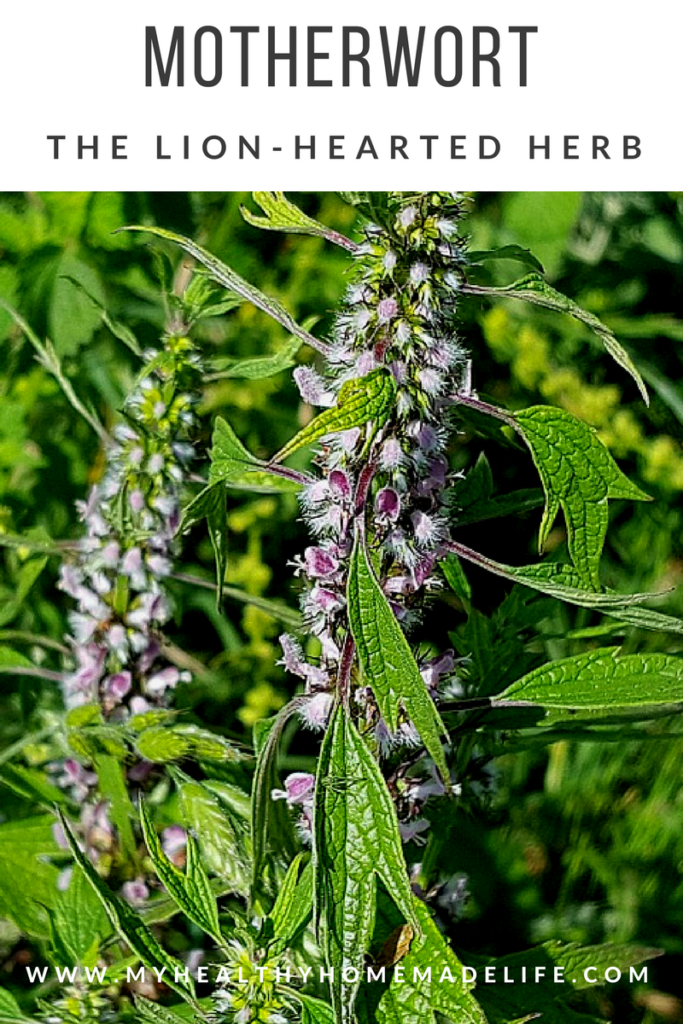
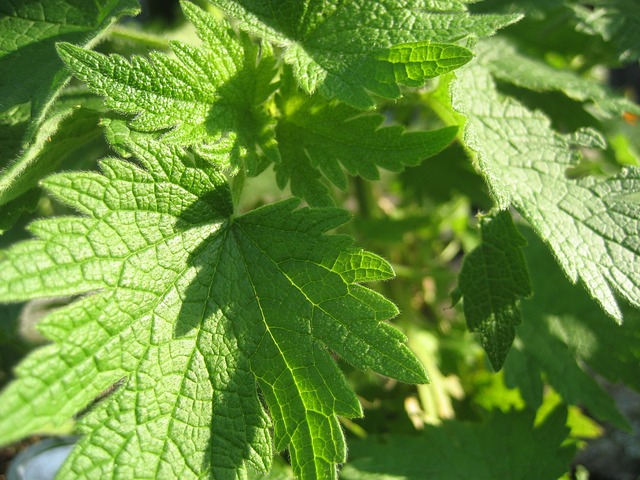

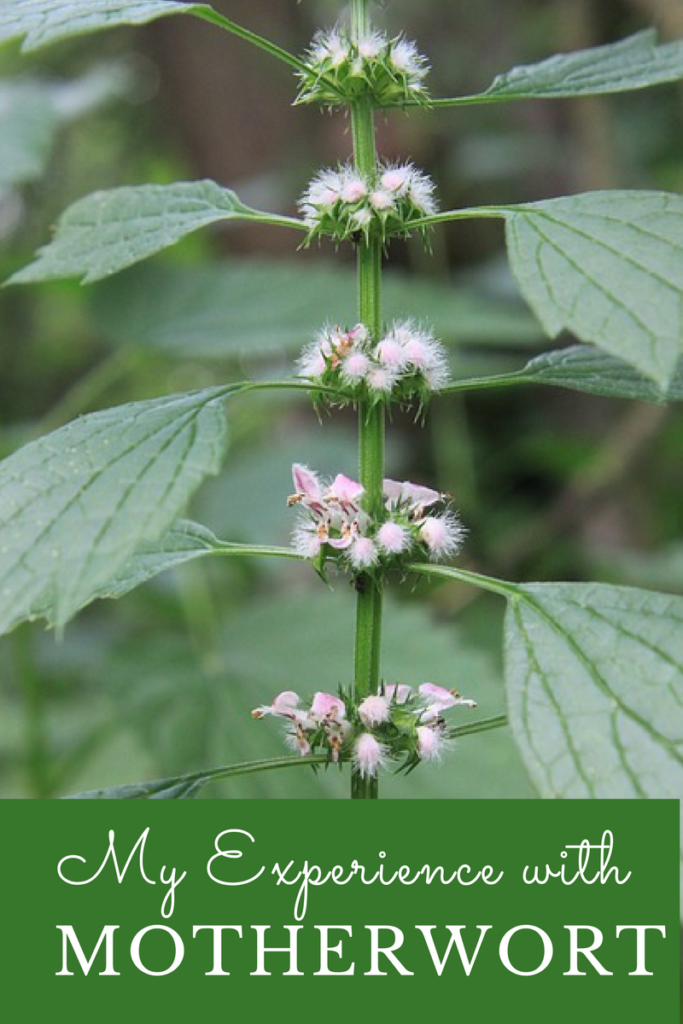

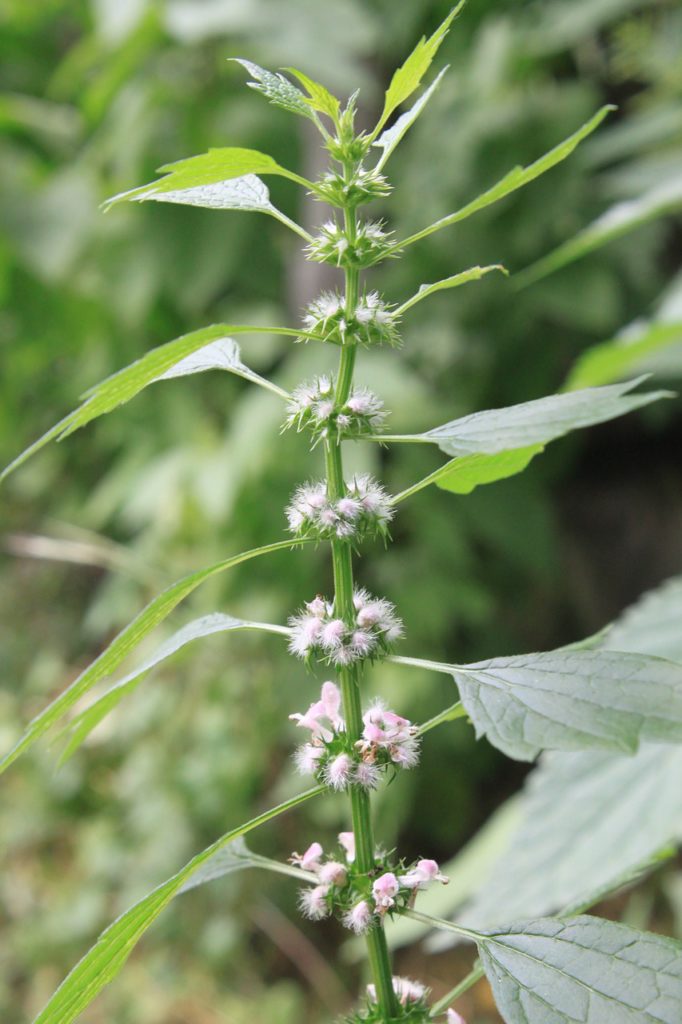
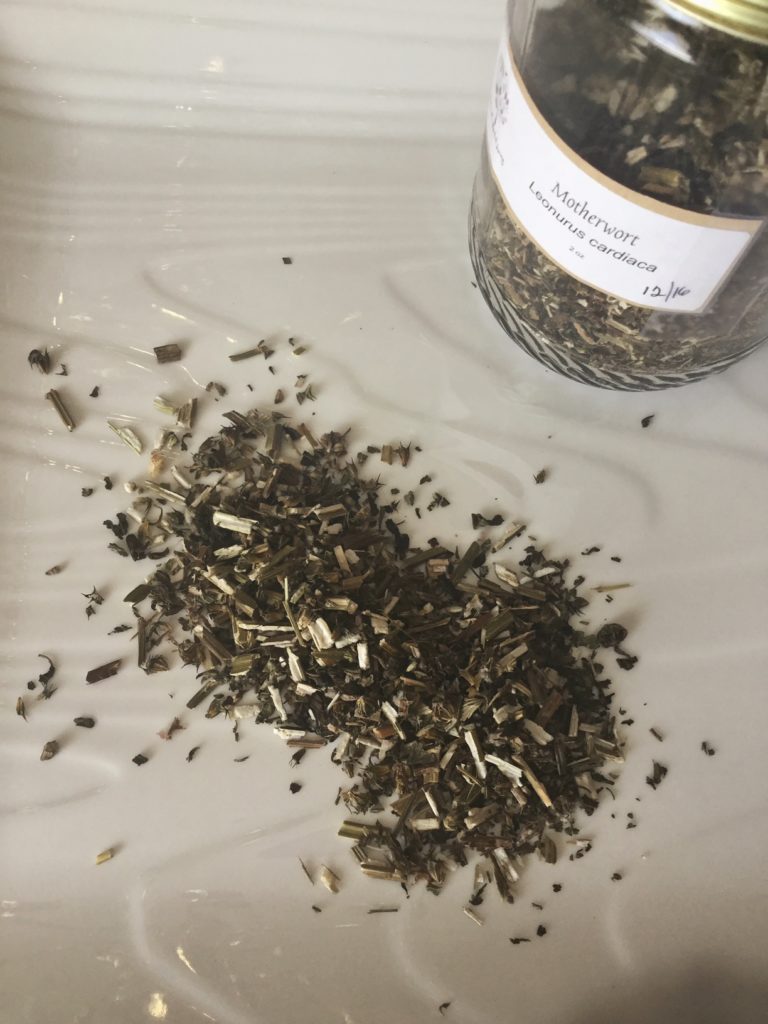


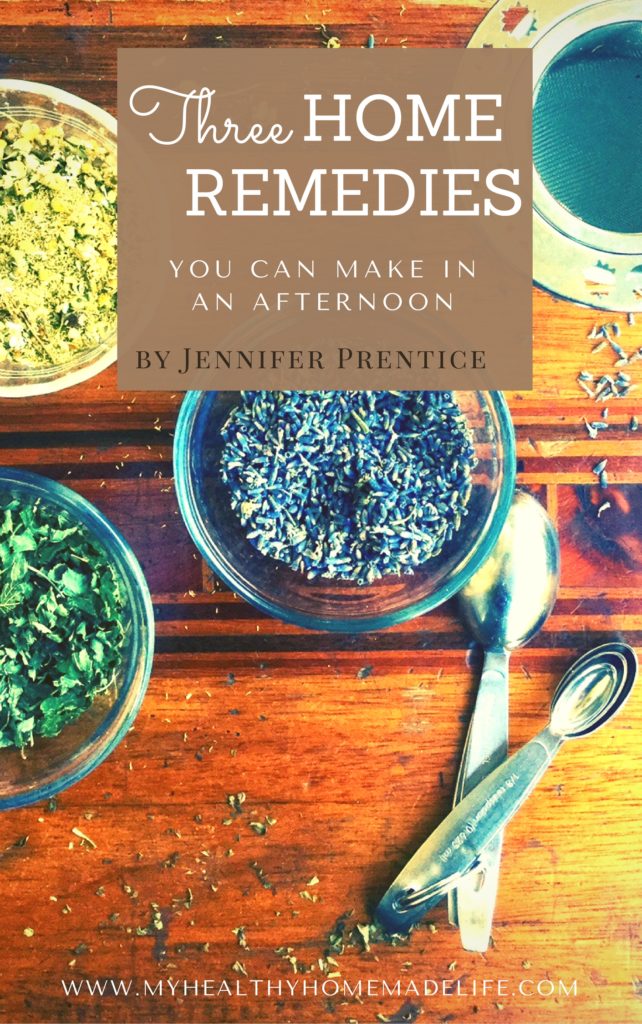


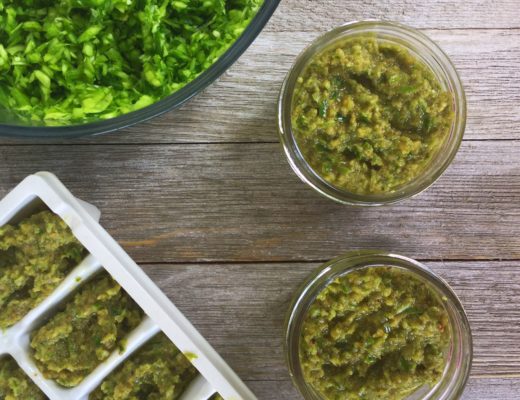
16 Comments